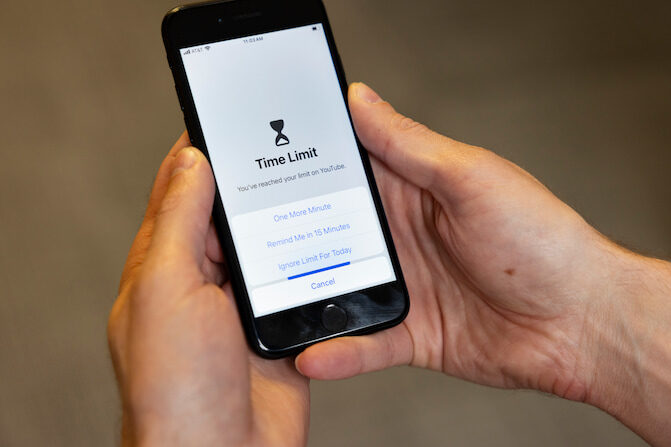Recommended? Get Frustrated with Your Cell Phone
Derek Smith at Michigan Engineering

The best way to help smartphone users manage their screen time may be to make phones progressively more annoying to use, according to new University of Michigan research.
The study shows that interfering with swiping and tapping functions is around 16% more effective at reducing screen time and the number of times an app is opened than forcibly locking users out of their phones.
The lockout strategy is used by many screen-time management apps today, and such apps also send users a notification offering more time before locking. Researchers planned to discuss the findings Monday at the Association for Computing Machinery’s Conference on Human Factors in Computing Systems in Honolulu.
“Lockout apps are pretty disruptive, so if someone is in the middle of an important task or a game, they’ll scramble to skip through the screen timer. Then, they can forget about the time limit and spend more time on the phone than they wanted to,” said Anhong Guo, U-M assistant professor of computer science and engineering and the corresponding author of the study.
The researchers’ InteractOut app is more effective at limiting screen time because it is less restrictive and harder to ignore than hard lockouts. Once the user’s designated screen limit has been reached, InteractOut can delay the phone’s response to a user’s gesture, shift where tapping motions are registered or slow the screen scrolling speed.
The strength of the delays and shifts continues to increase each time the user touches the phone, up to a pre-set maximum, and the user can decide how the app interferes with their phone use. The app’s gradual interference allows users to continue using their phone, but with a little extra difficulty.
“If we just continuously add a little bit of friction to the interaction with the phone, eventually the user becomes more aware of what they are doing because there’s a mismatch between what they expect to happen and what actually happens. That makes using smartphones a more deliberate process . . . ".
Read the rest


